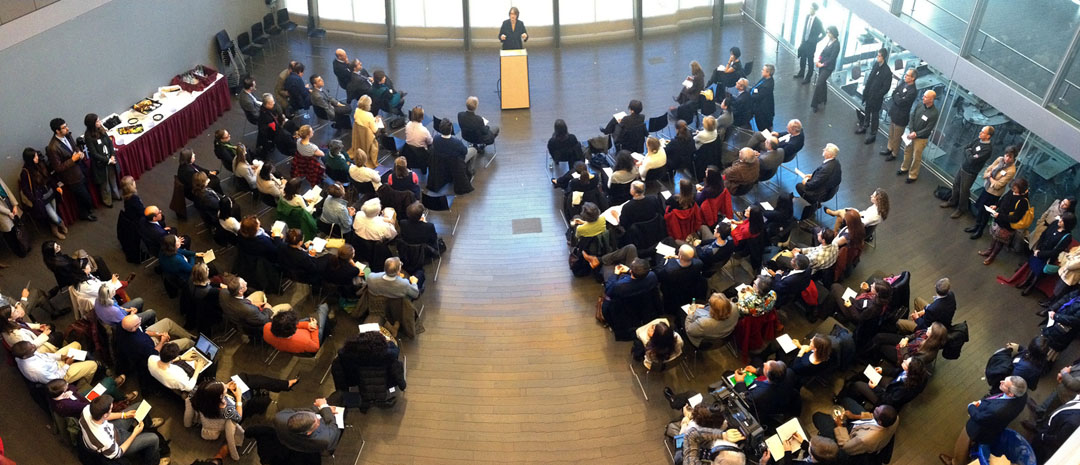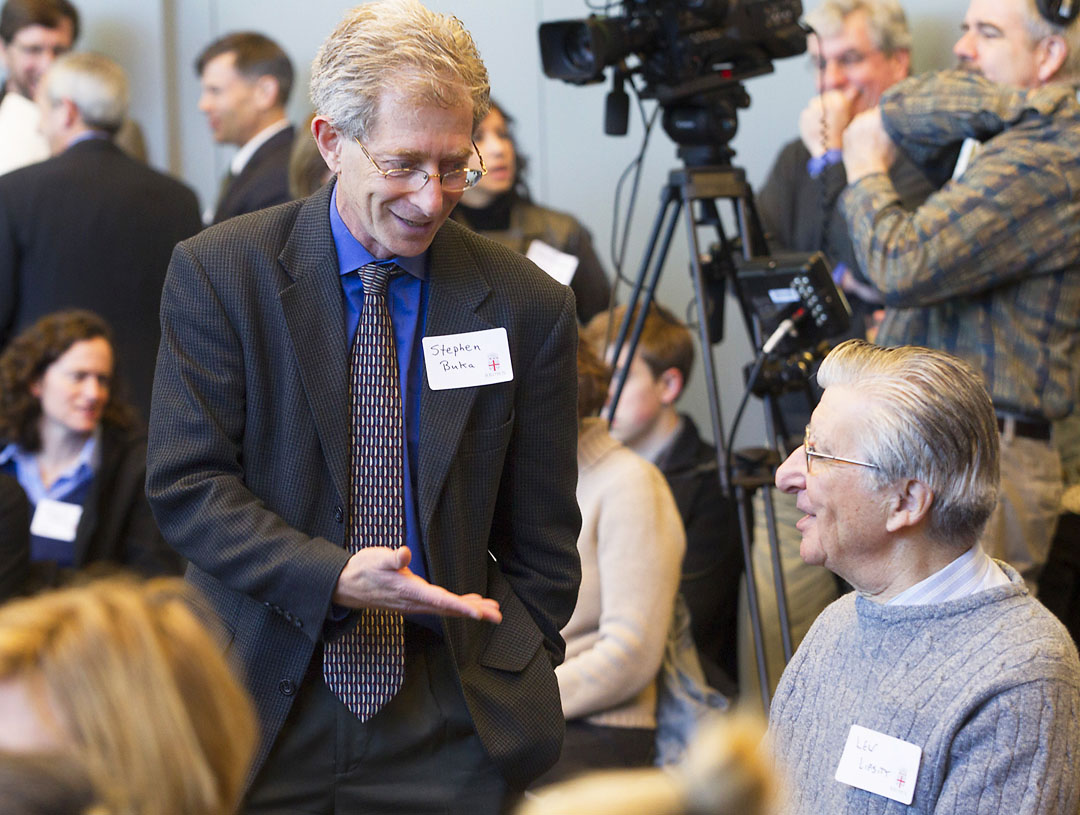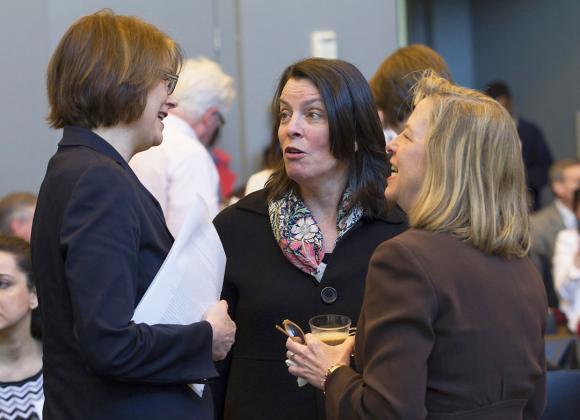PROVIDENCE, R.I. [Brown University] — Brown University announced today the launch of a new initiative that will bring together students, faculty and community organizations to tackle pressing social issues, both locally and globally. TRI-Lab — Teaching, Research and Impact — will be piloted beginning in the fall of the 2013-14 academic year with a focus on healthy early childhood development in Rhode Island. The inaugural lab will be co-chaired by Stephen Buka, professor and chair of the Department of Epidemiology, and Elizabeth Burke Bryant, executive director of Rhode Island KIDS COUNT.
The initiative was announced at a launch event that included remarks by Brown University President Christina Paxson, Rhode Island Lt. Gov. Elizabeth Roberts, Dean of the College Katherine Bergeron, Buka and Bryant. Government officials, members of the local community, students, faculty, and staff gathered for the announcement at the Perry and Marty Granoff Center for the Creative Arts on the Brown campus.

“TRI-Lab reflects ideally Brown's mission ‘to serve the community, the nation and the world,’” said Paxson. “The model brings together the energy and expertise of diverse partners to advance and apply shared knowledge and develop innovative approaches to address pressing social issues. We are enormously grateful for the participation of our valued community partners like Rhode Island KIDS COUNT, and I am delighted that the pilot lab will focus on the well-being of young children right here in Rhode Island.”
The heart of the lab will be a year-long seminar in which participants explore the framework and context of the issue and develop ideas for collaborative work that would compete for seed funding from TRI-Lab. Prior to the seminar, labs will sponsor conferences and events that connect the University and community around a social issue and cultivate interest. As part of this phase, Brown faculty and community experts may partner to develop and teach a course for first- and second-year students that provides a foundational framework for an upcoming TRI-Lab topic. Student participants may also be matched with internship or research opportunities with faculty or community partners to gain a better understanding of the social issue they’ll be examining.

In the year following the seminar, lab cohorts can apply for seed funding to continue to work together to build practice and knowledge around solutions.
The Swearer Center for Public Service has led the development of TRI-Lab, based on input from nearly 200 faculty, community partners, and undergraduate and graduate students. The focus of the inaugural Lab was determined based on its potential to bring together the extensive communities of expertise on the issue in the state and at Brown.
“The basic mandate of thinking globally and acting locally with high scholarly rigor and a collaborative approach is what Brown does best,” said Buka. “This is particularly critical for the topic of healthy early childhood, which involves multiple areas including education, pediatrics, public health, economics, public policy, and more.”
“Addressing inequities in the health and wellness of our state’s children has a tremendous impact not only on the lives of those children but on our collective well-being as a state,” said Bryant. “The Tri-Lab will bring together community and academic expertise in a powerful new way that will result in unprecedented collaboration and improved child outcomes.”
The goal is to identify new ideas and approaches that address health inequities among young children. Organizers expect participants will ask questions and develop interventions related to a range of arenas, which could include early education, cultural and language barriers, behavioral economics, and health literacy, and span research, practice, and policy.

